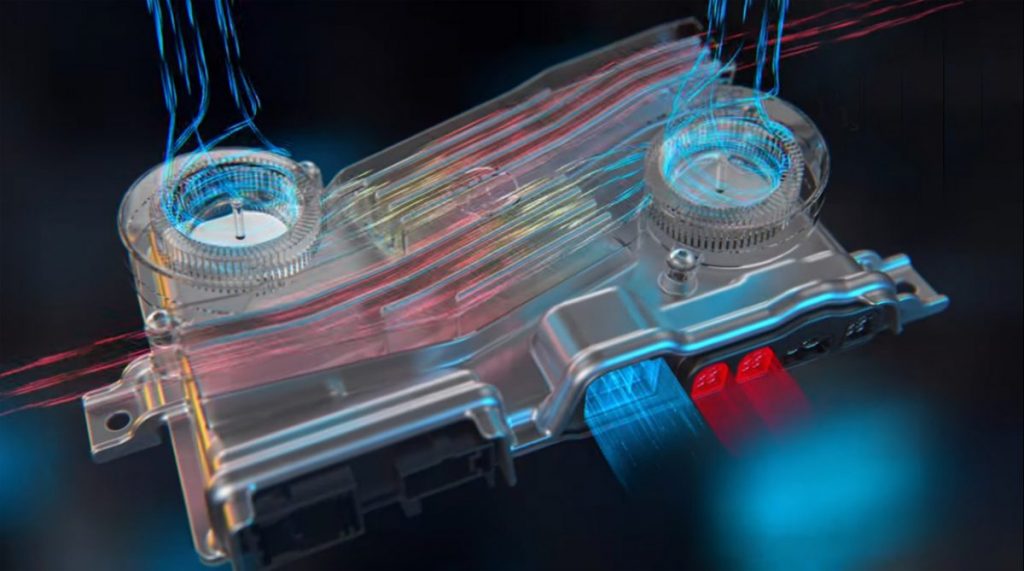
[ad_1]
To understand autonomous driving, the business wants deep studying fashions environment friendly sufficient to run on current {hardware}, writes Yonatan Geifman
Superior driver help methods (ADAS) have progressed significantly in recent times. Blind spot detection, lane help, and collision avoidance are only a few of the methods closing the technological hole on the highway in direction of true vehicular autonomy. However to borrow a quote from our impatient backseat passengers, “Are we there but?” Not fairly. There are nonetheless roadblocks between the place the business stands and the place it’s attempting to go. However every impediment the automotive business encounters is a catalyst for innovation, bringing us nearer to an period of mobility during which autonomous driving isn’t just ubiquitous, however extremely protected.
The difficulty usually boils all the way down to the software program fashions that energy ADAS functions. These deep studying fashions execute in-vehicle knowledge processing in real-time and require enormous quantities of laptop energy to run. Consequently, when constructing in-vehicle functions, builders with restricted computational assets discover themselves too usually confined to selecting between velocity or accuracy. Nonetheless, with security hanging within the steadiness, the stakes are just too excessive to compromise on both.
Except velocity and accuracy can each be sufficiently prioritized, advances in autonomous functions will stay in second gear. One strategy to overcome this impediment? Effectively, automotive lovers know all about tuning; it’s all about getting the right combination of variables—velocity, reliability—to attain peak engine efficiency. The identical precept may be utilized towards optimizing deep studying fashions.
Driving into the deep finish
The deep studying fashions embedded into ADAS methods course of enormous quantities of information collected from cameras and different sensors within the automobile. With all that knowledge, deep studying fashions empower autonomous autos (AVs) to “suppose”, or fairly, course of data nearly instantaneously, as a way to make the split-second choices human drivers make on the highway on daily basis.
Every impediment the automotive business encounters is a catalyst for innovation
Image a automobile cruising down a avenue when abruptly a ball bounces onto the highway. The automobile has to course of this enter, predict the doable trajectory of a kid operating after it, and select the most secure plan of action—brake, swerve, and so on. Since the price of error is so excessive, ADAS methods have to be extremely quick and correct. Neither can come on the expense of the opposite. However builders are struggling to ship on each equally, regardless of advances in deep studying fashions and edge gadgets.
Whereas some specialists have instructed cloud processing in its place, this answer comes with its personal dangers. Connecting to distant third-party cloud-based assets to energy split-second decision-making comes with the opportunity of transmission delays, crucial lags in ADAS performance, and even knowledge breaches, all of which jeopardise security.
As an alternative, AV security lies in empowering laptop processing throughout the automobile itself. To take action, the problem of computing constraints have to be overcome, which means fashions have to be tailor-made particularly to the sting gadgets they’re operating on. These smaller, extra environment friendly fashions will help growth groups unlock each little bit of computational energy that edge gadgets have to supply as a way to obtain optimum velocity and accuracy.
Smaller fashions, higher security
The extra automotive builders shrink and tailor the fashions inside automotive {hardware}, the nearer the business strikes in direction of whole automobile autonomy. Proper now, there are various ADAS security capabilities that stand to profit from extra tailor-made fashions, resembling object detection—laptop imaginative and prescient methods that give AVs the potential to instantaneously recognise and react to things on the highway together with hazards. With extra environment friendly fashions, ADAS sensors can rapidly course of complicated visible knowledge in real-time to allow collision avoidance and automated emergency braking.

Smaller, environment friendly fashions additionally stand to reinforce pose estimation. By analysing posture, head orientation and eye gaze of the motive force, pose estimation fashions are poised to detect fatigue and distraction in real-time, stopping avoidable accidents by assessing consideration and application of the particular person behind the wheel. If such indicators are detected, this ADAS characteristic can finally immediate autos to robotically assume command momentarily whereas the motive force regains consideration.
Localisation and mapping additionally obtain crucial enhancements via improved fashions. With the implementation of superior distant sensing strategies like LiDAR, ADAS methods can decide a automobile’s place and map its environment. Nonetheless, this characteristic requires an unlimited quantity of correct real-time knowledge processing for autonomous functions.
Lane monitoring is one other of the a number of key ADAS capabilities that stand to enhance from tailor-made fashions. Processing the visible knowledge from lane markings is a steady process that requires lightning-fast and correct evaluation for full autonomous performance. With these capacities, ADAS might take way more stress off long-distance drivers by serving to to maintain autos from straying from their lanes.
The make and mannequin
Many different automotive developments—in-vehicle infotainment, cyber safety, power administration—are more likely to focus their options round edge computing, the place knowledge processing happens within the automobile itself fairly than being carried out within the cloud. Due to this fact, it turns into crucial that deep studying fashions are usually not simply correct but additionally speedy and environment friendly to assist the vary of features wanted for AVs to change into extensively adopted.
Builders ought to goal for deep studying fashions which are compact and designed particularly for sure {hardware} architectures. To that finish, dev groups should optimise effectivity charges in order that the fashions are capable of absolutely leverage obtainable computational assets and reminiscence utilization of the sting gadgets they run on—ADAS, onboard computer systems, and telematic gadgets, amongst others.
In brief, tailoring smaller fashions to particular {hardware} will assist automotive builders cross the autonomous end line.
In regards to the writer: Yonatan Geifman is Chief Government and Co-founder of Deci
[ad_2]